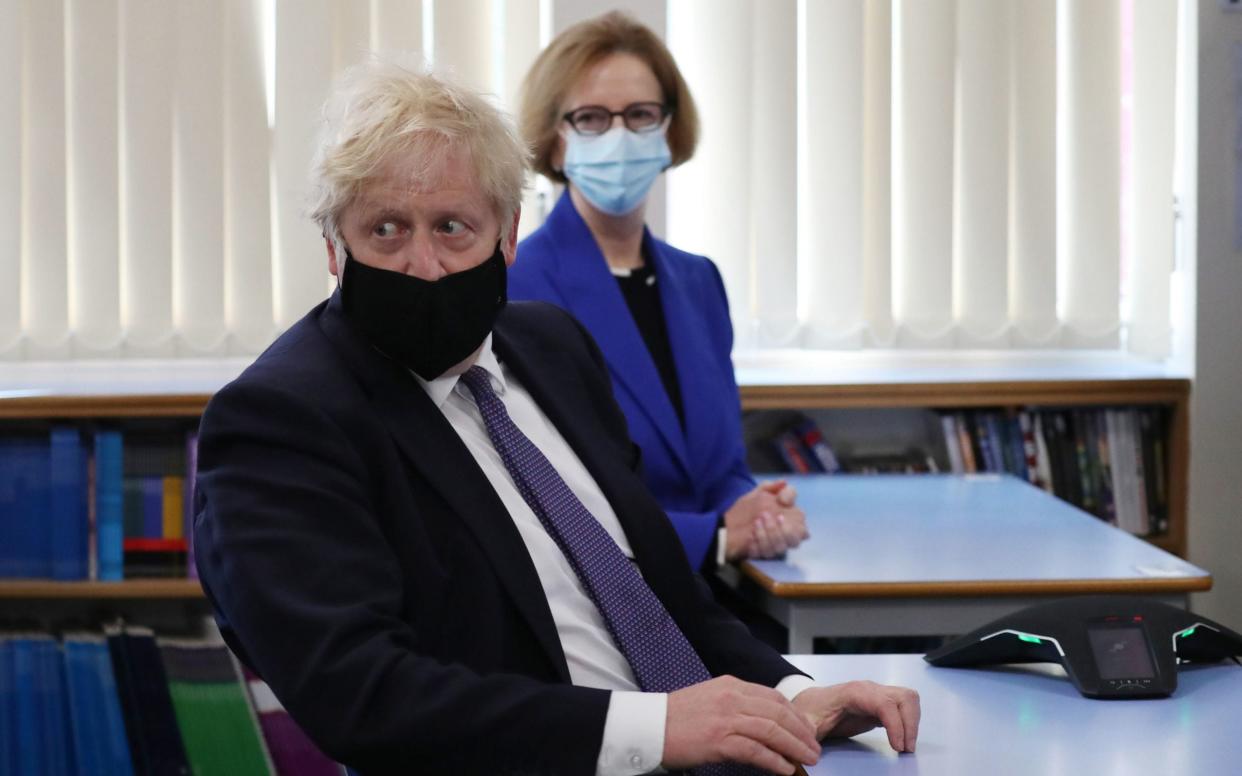UK should reverse aid cuts 'as soon as possible', says former Australian PM Julia Gillard

- Oops!Something went wrong.Please try again later.
- Oops!Something went wrong.Please try again later.
- Oops!Something went wrong.Please try again later.
The UK should reverse its aid cuts "as soon as possible", according to girls' education advocate and former Australian prime minister, Julia Gillard.
Speaking after a visit to a school in the north-east of England with Prime Minister Boris Johnson on Thursday, Julia Gillard, now chair of the board at the Global Partnership for Education, said it was a "pivotal time" for girls' education and she hoped the UK would continue to support initiatives around the globe.
"It's my hope that the UK can return to 0.7 per cent [of gross national income as an aid spending commitment] as quickly as possible," she told The Telegraph.
"The UK has a loud and expert voice in the world of aid and development in part because of the bipartisan support for the 0.7 per cent target, but also because of the UK's expertise in policy and how to make sure programmes work and work well."
The decision to cut UK aid spending from 0.7 per cent of GNI to 0.5 per cent – or around £5 billion in real terms – has sparked such outrage in development circles and among MPs that the government has pledged to reverse it when the economic situation allows.
The cuts are beginning to take hold as the UK prepares to lead the G7 summit in June and a fundraising summit in July with GPE, the world's largest education funding partnership, backed by governments, the private sector and multilateral organisations.
GPE is aiming to raise $5bn (£3.6bn) for the next five years to fund its work improving access to education in 90 countries. The UK will host the summit jointly with Kenya, whose president, Uhuru Kenyatta, joined Ms Gillard and Mr Johnson via video call during their visit to Cleves Cross Primary in Ferryhill, County Durham, on Thursday.
Foreign Secretary Dominic Raab has pledged that the UK's commitment to GPE will be a "significant increase" on previous years. In 2018, Britain promised £225m over three years. Historically, it is the organisation's largest donor.
"We're looking to the UK to make an ambitious pledge and use its voice to persuade other countries to do so," said Ms Gillard. UK civil society has called for a £600m pledge from the UK.
However, despite this funding, aid groups have pointed out that swingeing cuts to reproductive health and nutrition programmes will also have a huge impact on girls' education, because hungry children cannot learn and pregnant schoolgirls often leave school.
MSI Reproductive Choices chief executive Simon Cooke said: "The UK government has expressed support for girls’ education, yet it is taking away a key enabler that helps keep girls in school. In Niger, one in two girls will give birth before their 18th birthday, but only one in 100 will finish secondary school.
"We can’t allow short-term cost savings to undermine a decade of progress on gender equality. Unless others urgently step forward to fill this funding gap, the impact will be catastrophic for a generation of women and girls.”
The organisation estimates that 85 per cent cuts by the UK government to UNFPA supplies could lead to an additional 7m unintended pregnances, 2m unsafe abortions, and 23,500 maternal deaths.
Ms Gillard said: "This is really a pivotal time – both a time of challenge and a time of opportunity. Even before Covid, we knew there were around 250m children of school age in the world not getting access to school, and disproportionately girls. And we are naturally worried that the Covid pandemic is going to set efforts back."
Moving away from education, Ms Gillard also suggested that she would like to see rich nations donate Covid-19 vaccines to help poorer countries emerge from the acute phase of the pandemic more quickly.
"Philosophically, obviously I believe that we will all be safe when each of us is safe, and that is about making sure that we can vaccinate everybody," she said.
Protect yourself and your family by learning more about Global Health Security

